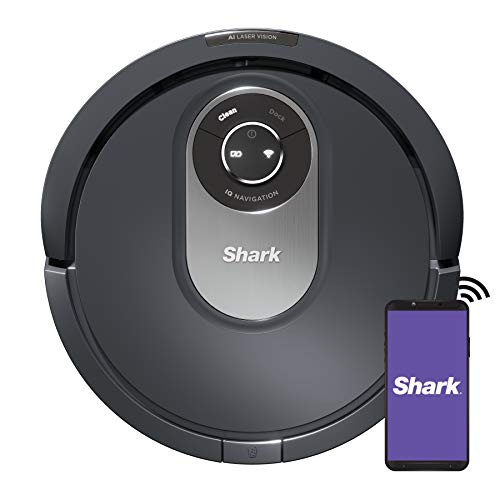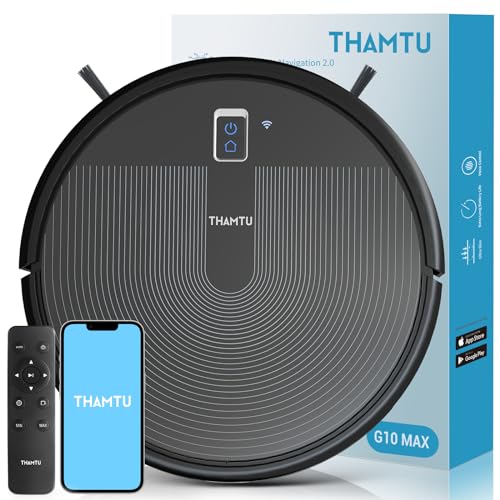Why Self Emptying Robot Vacuum For Pet Hair Is Fast Increasing To Be T…
페이지 정보
작성자 Tresa 작성일24-03-04 17:29 조회6회 댓글0건관련링크
본문
 Self Emptying Robot Vacuum For Pet Hair
Self Emptying Robot Vacuum For Pet HairIf you have pets, a robotic vacuum with a large dustbin can be a good option. It can hold a lot of pet hair. Find a vacuum that has an object avoidance feature that will detect and block everyday objects like cables, socks and toys.
What is an automatic robot vacuum cleaner?
A self-emptying robotic vacuum is a type of floor cleaning device that automatically empty the debris it accumulates into its docking station. The docking station is equipped with a dust bag that is designed to hold the pet hair, dirt, and other debris that is gathered by the robot while it cleans your home. When the dust bag is full, just take it off the base station and replace it. This feature removes the need to empty a robot's onboard dust bin after every use, thereby saving time and Best Robot Vacuum For Hair energy. It also prevents dust from getting out of the dustbin and being blown back into the air which is helpful for families with household allergies.
The layout of your home and the type of flooring will determine if you should invest in an auto-emptying robot vacuum. If your house has carpeting throughout, you'll want to choose a robotic vacuum with enough power to clean it well. Otherwise, you may have to vacuum your floors on a more frequent basis. If you have pets, you'll be looking for an item with advanced navigation technologies that will help you keep pet messes out and other obstacles in the home.
Some self-emptying robotic vacuums can be programmed to empty their dustbins onboard into the docking station automatically after a specific number of minutes. This means that you don't have to do it manually each time. But, it's important to be aware that emptying a robot vacuum can be quite noisy.
It's also crucial to check the brushroll and wheels of your robot vacuum frequently for pet hair. This can hinder the robot's ability to effectively clean your home, and will also clog the filter and decrease suction power. Luckily, most robots have clean brushes and wheels that can be easily removed and cleaned with warm water.
Jodhaira Rodriguez is a product reviews analyst in the Good Housekeeping Institute's Cleaning Lab. She has tested dozens floor-cleaning devices, including vacuum mop combination devices and robot vacuums. She has personally tried all self-emptying robots in this roundup.
How does a self-emptying robot vacuum work?
The self-emptying feature is one of the most significant recent developments in robot vacuum design. It eliminates one of the major drawbacks of most robot vacuums: the requirement to empty their tiny dust bin onboard after each cleaning session. Instead, the majority of models that have self-emptying dustbins have docking stations that have the largest vacuum cleaner bag inside it, and the robot is designed to dump its own waste into the larger bin. The process is usually automated and occurs at the moment that the robot returns to its dock to recharge and can be done while you're doing anything else.
The Best Robot Vacuum For Hair (Www.Highclassps.Com) self-emptying robots typically come with a range of handy features, as well. Many robots can be controlled by an app that works with your smartphone. You can set schedules and adjust settings, as well as view a live feed of the camera of the robot. Some can automatically detect the changes in flooring, for example switching from bare to carpeted floors, and adjust cleaning settings accordingly. These machines also offer advanced features, such as attachments, mapping and quiet modes.
Self-emptying robots can be costly however, and may not be worth the splurge for all. Before you purchase, it's important to consider the advantages and other aspects of this kind of robot vacuum.
A self-emptying robotic cleaner could be a fantastic option for any home that needs a little help with keeping it spotless. It will make life easier for homeowners who are busy and don't have the time to pause to do their daily chores, and empty the bin onboard. You may also be able to use your robot cleaner more often. This is a small step towards the ultimate goal of having a totally hands-off cleaning machine, but it's a good start.
What are the advantages of a self emptying robot vacuum?
For pet owners, self-emptying robot vacuums offer many benefits. The main benefit is that they eliminate the need to empty your bins frequently and this means that you don't need to linger over your robot or be concerned about running out of bin space. The fact that you can set a schedule and simply let your robot work without interruption is also great. The efficient process of emptying the base and re-installing bags also reduces dust blowback, which can be particularly beneficial for those suffering from allergies.
Additionally self-emptying robots typically have a bigger base than a typical charging dock, which means it can hold a larger amount of dirt and other debris. This can reduce the spread of allergens throughout your home, which is a particularly important consideration if you have pets. Pet owners also benefit from the longer runtime of a robot that cleans itself.
In addition, a self-emptying robotic will also help you reduce the amount of time you are spending on maintenance. Instead of having empty the onboard bin often, you'll just need to empty the base every few weeks or more often. This is a huge benefit for parents, professionals and people with a hectic schedule.
However, it's important keep in mind that self-emptying robots won't be an answer to all your cleaning issues. Even the most powerful robot vacuums can get stuck under furniture, on thresholds for doors or in thick rugs. They can also get blocked or catch on shoes, clothing or chargers for phones. So while a self-emptying robot will free up a bit of your time, you'll have to perform the traditional vacuuming in those difficult-to-access corners and nooks.
Some pets might be afraid of the sound or movement of a self-emptying robot. Introduce them slowly and let the robot be accustomed to the noise and movement as you move it around your home.
What are the disadvantages to the self-emptying robot vacuum?
Robot vacuums with self-emptying bases make cleaning a lot easier. Instead of having to pause during the cleaning process to empty the dust bin on board you can simply set it and forget it. This makes them a good option for busy people who want to manage their cleaning while juggling kids, work, and other chores. But, a self-emptying base isn't the only option for robot vacuum convenience, as you'll still need to empty it frequently.
The onboard storage of most self-emptying robot vacuum for dog hair vacuums is small, which means they have to be emptied much more frequently than traditional models. This is especially true in homes with lots of pet hair and other debris that builds up quickly. Some require emptying every two or three cleaning sessions.
Robotic vacuums may also get stuck on objects or get tangled. This requires human intervention. Certain models claim to use sensor technology to avoid obstacles. However this isn't always the situation. They are still caught in cords, shoelaces, and stray toys.
The other big downside of self-emptying robots is that they're usually fairly expensive, which can be an issue for those on limited budgets. Additionally, they require a specific space for their docking station, which can be tricky to fit in smaller homes.
It's also crucial to determine whether the added functionality of a vacuum cleaner that self-empties is worth the cost. It's a good idea determine if the model you're considering features a large enough bin to meet the needs of your family, as well as checking for other convenient features such as Wi-Fi or smart home connectivity that could make the device more useful.
Also, it's worth thinking about if you have anyone in your household who is susceptible to allergies. The use of a vacuum bag could reintroduce dust into air, which could trigger respiratory problems and asthma. It's important to find a model that lets you set no-go zones, which will prevent the robot from entering your workplace or getting too close to antique rugs. Certain older models require that you install strips, while the newer models allow you to define "no-go" zones using their applications.

댓글목록
등록된 댓글이 없습니다.

